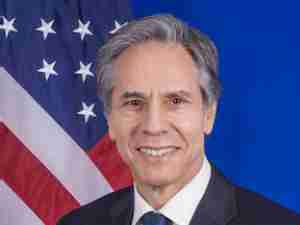APEC Ministers Vow to Fight Protectionism as Trump Slams WTO
By: Nguyen Dieu Tu Uyen | Nov 11 2017 at 01:15 AM | International Trade
Asia-Pacific ministers meeting in Vietnam this week pledged to fight protectionism and embrace the World Trade Organization, issuing a statement a day after President Donald Trump criticized the WTO as hurting U.S. economic interests.
In a statement issued three days after members began meeting in Danang, ministers vowed to “recommit to fight protectionism.”
The move comes after days of haggling by trade representatives over the framework of a blockbuster Pacific trade pact abandoned by Trump straight after he took office. The statement, which highlighted the importance of multinational trade agreements, underscored how the U.S. president’s protectionist tilt risks isolating America on the global trade stage.
“Countries were embraced by the World Trade Organization, even if they did not abide by its stated principles,” Trump said during a speech at the Asia-Pacific Economic Cooperation summit on Friday. “Simply put, we have not been treated fairly by the World Trade Organization.”
In contrast, in the ministerial statement released on Saturday ministers said they “recognize the work of the WTO in ensuring international trade is rules-based, free, open, fair, transparent, predictable and inclusive.” They committed to “cooperate to improve the functioning of the WTO.”
In an interview in Vietnam this week, WTO Director-General Roberto Azevedo warned the Trump administration’s decision to block new appointments to the watchdog’s appellate body is compromising the ability of the system to resolve disputes.
‘A Disaster’
“The U.S. has said consistently that they think the appellate body functioning could be improved,” he said. “They think the appellate body sometimes overreaches, particularly in a moment when the WTO was not delivering negotiated outcomes that there was a temptation of the appellate body to legislate. Other members disagree.”
“It’s important we try to find a solution, the sooner the better because the impact is already being felt,” he said.
As a candidate, Trump called the WTO a “disaster” and threatened to withdraw from it. While he has not followed through as president, in April he ordered a review of all U.S. trade deals, including its participation in the WTO, to see if they would harm national interests and should be revised or terminated. He is renegotiating the North American Free Trade Agreement as well as having pulled out of the Trans-Pacific Partnership.
Trump also told Asian nations in a speech Friday to APEC business leaders that he would no longer join multilateral deals like the TPP but would seek bilateral pacts—and only with countries that played by the rules and didn’t try to exploit the United States.
“We are not going to let the United States be taken advantage of anymore,” Trump said.
Asia-Pacific ministers negotiating a way to salvage the TPP signaled they were moving on with trade agreements without the U.S.
Japanese Economy Minister Toshimitsu Motegi late Friday said the 11 remaining members of the TPP had secured a framework agreement. Canada, which had held out for a day on signing onto the agreement, said it had won some desired concessions while warning that work is needed to reach a full deal.
Host nation Vietnam, which is aggressively pursing trade deals to boost its export-driven economy, warns against protectionism. Global agreements are important for sustainable development, Vietnamese President Tran Dai Quang said at the APEC leaders summit on Saturday.
The country’s trade representatives lobbied strongly to include the anti-protectionism language in the ministerial statement, said Tran Viet Thai, a deputy director general of the Diplomatic Academy of Vietnam in Hanoi.
“There were a lot of disputes, debates, among countries with the two different views—one side supports free trade while the other doesn’t,” he said. The side supporting “the inevitable global trend won the fight. This is significant."








